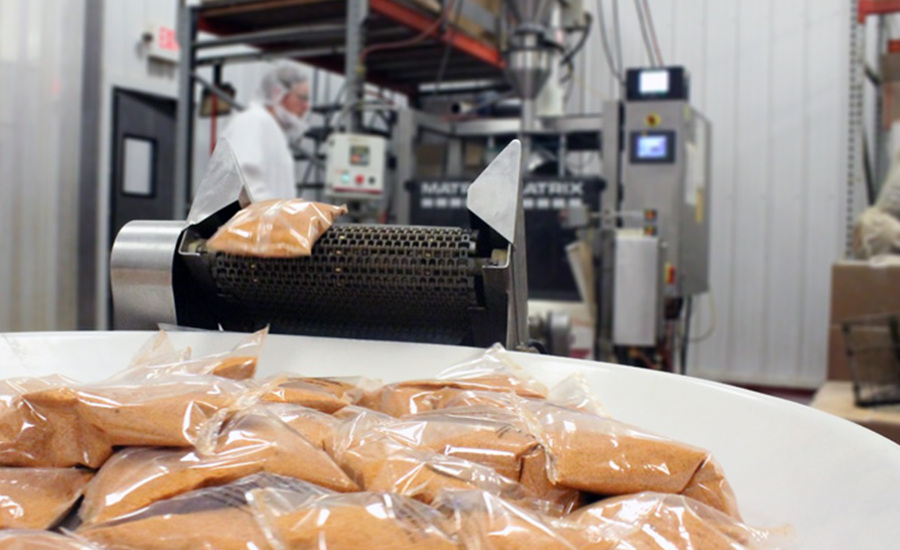Introduction
In today's hectic world, the demand for practical and ready-to-eat foodstuff is on the surge. This has actually led to an enhanced reliance on contract food manufacturing, where companies outsource the production of their food to customized makers. Nonetheless, one aspect that is frequently ignored in the agreement manufacturing process is effective food storage space as well as distribution. In this short article, we will certainly explore the importance of effective food storage as well as circulation in contract production and also its influence on the overall high quality and success of food products.
The Function of Contract Food Manufacturing in Australia
Australia has a thriving food industry, with a wide range of local and global brands accommodating the diverse preferences and also choices of customers. Contract food manufacturing plays a vital duty in this sector by giving firms with the necessary resources, knowledge, and infrastructure to effectively produce their food products. From tiny startups to big firms, lots of organizations resort to contract producers to bring their culinary productions to life.
Contract Food Production in Brisbane: A Hub for Innovation
Brisbane, the capital city of Queensland, is known for its dynamic food scene as well as innovative cooking offerings. It comes as no surprise that contract food manufacturing has actually prospered in this area. With cutting edge facilities and a proficient workforce, contract food producers in Brisbane are well-appointed to take care of the production requirements of different services. Whether it's establishing brand-new recipes or scaling up production, these suppliers play a critical function in bringing tasty food products to customers' plates.
Ensuring Top quality: The Trick to Successful Agreement Food Manufacturing
When it concerns contract food manufacturing, ensuring product top quality is paramount. Producers should adhere to stringent criteria and laws established by authorities such as the Australian Food Specification Code and also Excellent Manufacturing Practices (GMP). From component sourcing to production procedures, every action needs to be thoroughly intended as well as carried out to preserve the contract food production best quality criteria. This not just guarantees customer fulfillment but additionally aids construct count on and reputation for both the contract maker and the brand name they are producing for.
The Obstacles of Food Storage in Contract Manufacturing
Efficient food storage space is an important element of contract production. The correct storage space of basic materials, active ingredients, and also finished items is necessary to keep their quality and freshness. However, this can be difficult, particularly when dealing with perishable things or big amounts of inventory. Aspects such as temperature control, packaging honesty, as well as stock management play a crucial function in making sure that food stay safe for consumption throughout the supply chain.
Overcoming Storage space Challenges: Technology as well as Innovation at Play
In recent years, improvements in technology have reinvented the way food is saved as well as distributed in contract manufacturing. From state-of-the-art refrigeration systems to advanced stock administration software, manufacturers currently have accessibility to tools that can enhance their operations as well as make certain ideal storage problems. These technical innovations not only improve food safety however additionally improve performance as well as minimize waste, inevitably benefiting both the manufacturer as well as the end consumer.
The Significance of Effective Food Distribution
Efficient food circulation is another important element of effective contract production. Once the food products are manufactured as well as kept appropriately, they require to reach their designated destinations without delay. Prompt shipment makes sure that the items remain fresh and also fulfill customer expectations. Moreover, efficient circulation likewise lessens costs associated with transport as well as logistics while optimizing general productivity.
From Ranch to Fork: The Trip of Food Products
The journey of foodstuff from ranch to fork involves multiple phases, each calling for careful preparation and also execution. Allow's take a closer check out each step involved in this procedure:

Sourcing Raw Materials: Contract food manufacturers function carefully with suppliers to resource top quality basic materials for their items. This includes whatever from fresh produce to seasonings, spices, and product packaging materials.
Food Production: Once the raw products are sourced, the agreement producer complies with a collection recipe and manufacturing process to develop the desired food. This includes various techniques such as food preparation, baking, mixing, and also packaging.

Quality Control: Throughout the production process, quality control actions are implemented to guarantee that the finished item satisfies all safety and security and top quality criteria. This includes regular inspections, screening, as well as adherence to regulatory requirements.
Food Packaging: After the item is made, it is thoroughly packaged to keep its quality and also honesty during transport as well as storage space. Contract suppliers commonly offer personalized packaging remedies customized to satisfy the particular demands of their clients.
Storage and also Distribution: As soon as packaged, the food are saved in suitable conditions to keep their quality. From temperature-controlled warehouses to efficient logistics networks, agreement producers ensure that the products are distributed effectively and reach their destinations on time.
FAQs
What is agreement food manufacturing? Contract food manufacturing describes contracting out the production of food products to specific manufacturers. This enables businesses to concentrate on other elements such as advertising as well as circulation while ensuring high-grade products for their customers.
Why do firms select contract food manufacturing in Australia? Firms select contract food manufacturing in Australia for different factors, including cost-effectiveness, accessibility to specific experience, conformity with regulatory requirements, and scalability of production.
What are the advantages of contract food manufacturing? The benefits of contract food manufacturing consist of lowered capital investment, access to innovative technologies as well as devices, boosted production performance, faster time-to-market, and adaptability in meeting altering market demands.
What is the duty of food product packaging in agreement manufacturing? Food packaging plays a crucial duty in agreement production as it makes certain item security as well as prolongs shelf life. It likewise works as an advertising tool by giving info regarding the item as well as enhancing its aesthetic appeal.
How important is food safety and security in contract manufacturing? Food safety is of utmost relevance in agreement manufacturing. Complying with strict food safety and security requirements makes certain that the products are secure for usage and also aids build consumer trust.
How does reliable food storage as well as distribution effect the success of contract manufacturing? Effective food storage space and also circulation play a significant function in the success of contract manufacturing. They make sure that foodstuff remain fresh, get to consumers in a timely manner, as well as keep their high quality throughout the supply chain.

Conclusion
Efficient food storage space and also distribution are essential components of successful contract manufacturing. From making certain item top quality to reducing wastefulness and also meeting customer assumptions, every aspect of the supply chain plays a considerable duty in supplying secure and high-grade food products to customers. By leveraging technical developments, adhering to governing criteria, and also focusing on client satisfaction, contract suppliers can enhance their competitiveness in the marketplace while contributing to the total development of the Australian food industry.